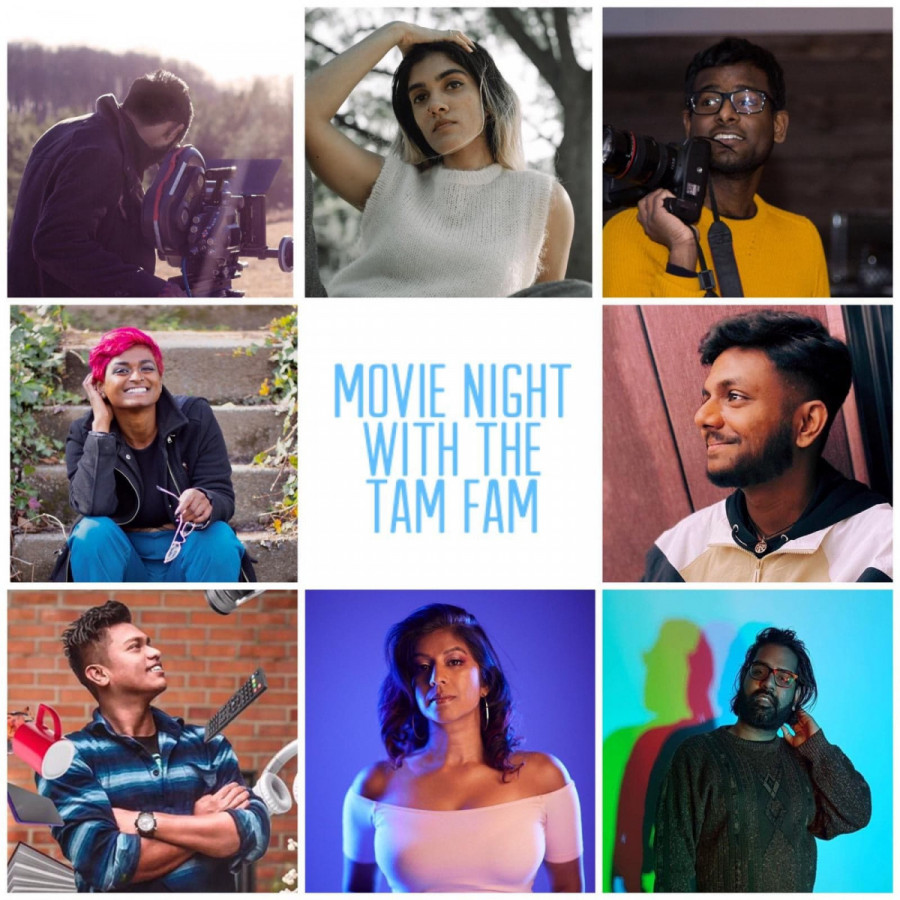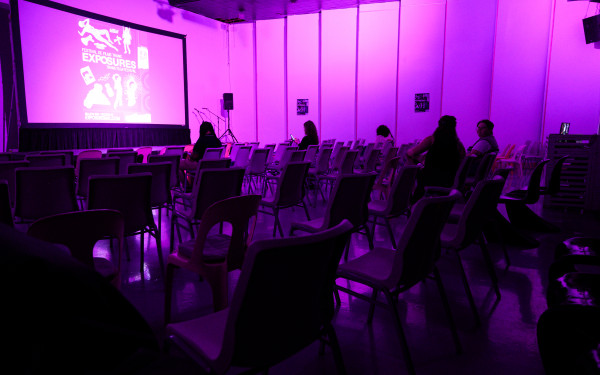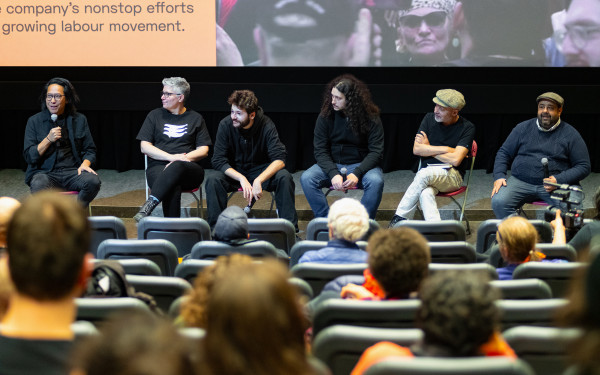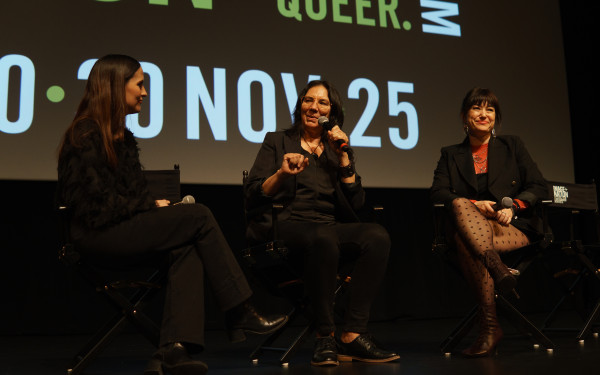Tamil-Canadian filmmakers showcased during online movie night
Tam Fam Lit Jam collaborates with Regent Park Film Festival
Avant-garde short films by Tamil filmmakers were brought to light on Friday, Nov. 20 for a Tam Fam Lit Jam movie night.
“It’s certainly not as fun as a live event would be,” said Tam Fam Lit Jam member Nedra Rodrigo about the online screenings. “But I don’t think it has been difficult finding folks for either the readings or the films because we put a call-out on social media.”
Tam Fam Lit Jam is a Toronto community reading series for established and emerging Tamil writers, where they can share and perform their written works. The series was sought after by the Regent Park Film Festival to round up films created by Tamil filmmakers for an online movie night.
“Within a couple of weeks, we’ve received all these wonderful submissions,” said Rodrigo, noting that they couldn’t manage to fit all of them within the programming.
The free community festival screened films that grapple with difficult themes, stories that explore diaspora and lower-income neighbourhoods, and touch on topics of cultural identity and multiculturalism.
“It’s been a beautiful experience so far,” she said. “Even at the readings, we’ve managed to have this really warm space where people share their work and it’s been amazing how many people have come.”
Tam Fam Lit Jam believes in the idea of supporting and nurturing each writer and reader willing to share their work.
Ramiya Pushparajah, director of the short films “Mother’s Day” and “Dublin Street,” worked with Rodrigo and two other Tam Fam Lit Jam members for this special collaborated event.
“We don’t have spaces in which we can specifically tell our stories to each other in conversation,” said Pushparajah. “Ultimately, as a filmmaker myself, I am very much interested in seeing a variety of films especially from Tamil filmmakers.”
Thanks to RPFF, Tam Fam Lit Jam screened a diverse-range of Canadian names in Tamil cinema. The opening film was a poetic short titled “Two Doves On a Painted Lake,” written and directed by Concordia alumnus Kalainithan Kalaichelvan.
“In this case, I wanted to write something pretty concise. I wanted to write something without character dialogue,” Kalaichelvan noted.
The eight-minute short film depicts the experience of loss and what it means to be alone upon experiencing that loss. The film utilizes minimalistic production, contemporary choreography and music, and Tamil poetry as well.
“I wrote a script and I gave it to Pras [Lingam],” he said. The film begins with a solitary man sitting on a boat, scattering the ashes of a deceased loved one in a silver lake.
“I think it’s time to tell our stories.” — Pras Lingam
“You just have to keep going,” said Pras Lingam, cast by Kalaichelvan to play none other than the starring role: the unnamed man who grieves the loss of his past lover and finds catharsis learning to let go.
Director, writer, and actor Lingam has previously made films in German, English, and Tamil. Something he continues to strive for is global recognition.
“Earlier in my life, I was confused [about] which market to even target,” he said. “We have the Indian market, we have the Canadian market, and then we have the diaspora market.”
Lingam is comfortable creating and acting in films for an international audience.
“There’s definitely challenges,” he said, mentioning that BIPOC people and organizations must gain momentum during these trying times. “The spotlight’s on us.”
“We just have to take advantage of it and tell our stories,” he said. “I think it’s time to tell our stories.”
Maya Bastian’s film “My Other History” deals with historical trauma, specifically “how trauma filters down through generations.”
Her film opens with an illustration of one eye centred on the screen. The following montage includes dispersed footage capturing civil unrest during the Sri Lankan Civil War which occurred from 1983 until 2009.
Her experimental collages play with the notion of what the eye can see. “Memory is triggered by what we see,” she said. The film also addresses how family conversations are capable of telling historical traumas to younger generations.
“I was born in Canada,” Bastian said. “A lot of the things that I know are through hushed whispers from my family, everyone talking when we get together.”
While “My Other History” attempts to capture the ineffability of intergenerational trauma, her second film that was screened, “Arrival Archives,” attempts to celebrate the joy of families having arrived in Canada.
Bastian brings together the stories of two different families both fleeing violence to start anew.
The short is a culmination of home videos. “We just don’t see a lot of home vides of BIPOC people in common media,” she said. She also interviewed a Congolese family for the project. Their son was a former child soldier.
It is a blend of tragedy and joy, featuring four generations of her own family as well. Bastian explained “my great-grandmother, my father, my sister and my daughter” all made an appearance in the film.
The film centres on the topic of food. “That’s where, for me, families get together and talk,” said Bastian.
“I wanted a bright and joyous telling of our arrival here, and I wanted to archive that for future generations,” Bastian continued.
The next Tam Fam Lit Jam reading session will be sometime this December. To keep up to date with the series, follow their Instagram @tamfamlitjam.







web_600_375_90_s_c1.jpg)